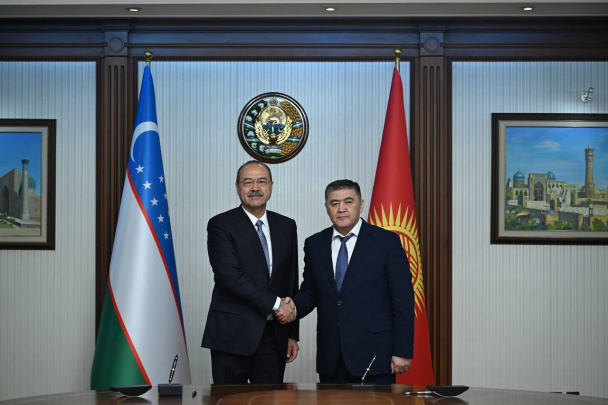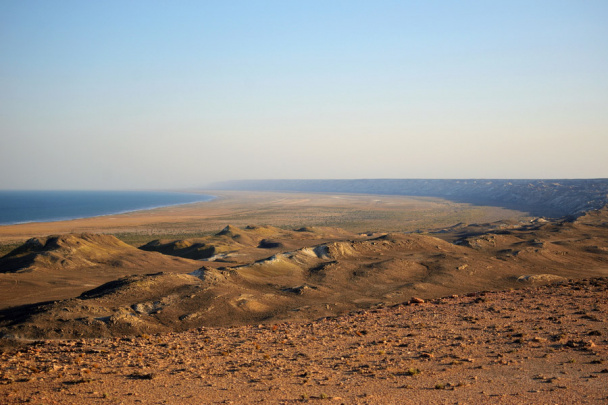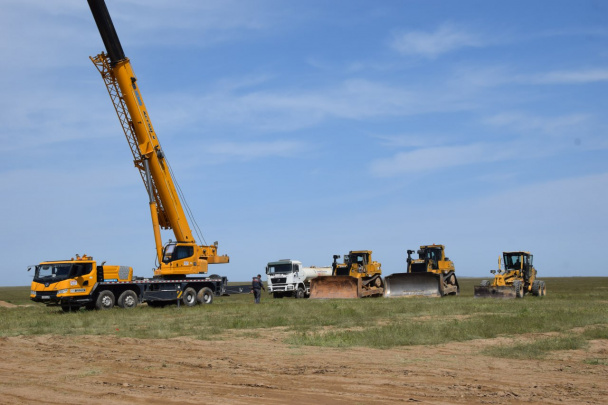Rosatom may build an NPP with a “dry cooling tower” in Uzbekistan
It is expected that cooling the reactors without water evaporation will help mitigate water shortages.
Rosatom is discussing with the government of Uzbekistan the use of a “dry cooling tower” to cool a future nuclear power plant, Interfax reports.
Polina Lion, director of the department of sustainable development of a Russian state-owned company, spoke about this at the UN Climate Change Conference COP28 in Dubai. According to her, the decision was dictated by the difficult situation with water resources.
Lion referred to forecasts according to which Uzbekistan could actually be left without water by 2050. Dry cooling tower technology will avoid water evaporation when cooling reactors.
“It’s a fairly complex technological solution, but we’re thinking a little ahead. And, in fact, the issue of minimum water consumption for nuclear energy is also very serious on the agenda,” Lion noted.
For information, in 2018, Uzbekistan and Russia began negotiations on the nuclear power plant project. Under the terms of the agreement reached, Rosatom will build two VVER-1200 units with a capacity of 1.2 GW each. The site is located on the shore of Lake Tuzkan in the Jizzakh region.
Reportedly, construction will take about 6 years. Uzbekistan hopes to use nuclear power plants to cover the electricity shortage and save gas. Since the country is one of the top 5 uranium producers, problems with fuel for the project are not expected.
Former Energy Minister Alisher Sultonov, in an interview in 2020, emphasized the environmental friendliness of nuclear power plants, as well as the safety of VVER-1200 reactors. Other experts in the field of ecology and energy also spoke about the importance and benefits of nuclear power plants for Uzbekistan.
The topic of Rosatom’s participation in the construction of new nuclear energy facilities was also discussed in April at the ministerial level. The head of the Ministry of Energy, Jurabek Mirzamakhmudov, then received Russian Deputy Prime Minister Alexander Novak.
At the end of November, the head of Rosatom, Alexei Likhachev, again announced the imminent signing of a contract. The state-owned company also submitted proposals for low-power reactors to the Uzbek side.
Recommended
List of streets and intersections being repaired in Tashkent published
SOCIETY | 19:12 / 16.05.2024
Uzbekistan's flag flies high on Oceania's tallest volcano
SOCIETY | 17:54 / 15.05.2024
New tariffs to be introduced in Tashkent public transport
SOCIETY | 14:55 / 05.05.2023
Onix and Tracker cars withdrawn from sale
BUSINESS | 10:20 / 05.05.2023
Latest news
-
Saudi Arabia drops Uzbekistan from eVisa list; official reason unknown
SOCIETY | 17:58 / 26.04.2025
-
Uzbekistan boosts fuel and gas production despite oil output decline
SOCIETY | 16:55 / 26.04.2025
-
Uzbekistan and Kyrgyzstan reach agreement on joint use of Chashma spring
POLITICS | 12:46 / 26.04.2025
-
Ambassador Henick: Now is the right time for a U.S. presidential visit to Uzbekistan
SOCIETY | 12:08 / 26.04.2025
Related News

12:46 / 26.04.2025
Uzbekistan and Kyrgyzstan reach agreement on joint use of Chashma spring

17:41 / 23.04.2025
China’s Shanghai Electric may provide turbines for Uzbekistan’s nuclear plant

15:21 / 19.04.2025
New research links Aral Sea bed uplift to massive water loss

13:43 / 16.04.2025



